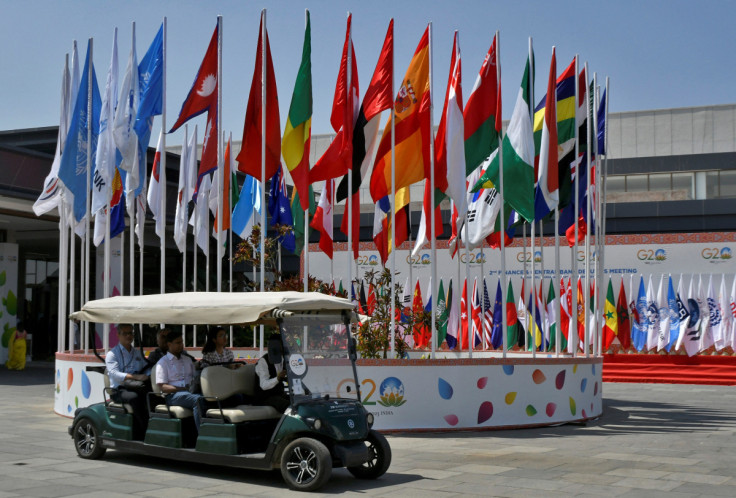G20 Sherpas: The Tough Negotiators Who Help Their Leaders Walk Toward The Summit

KEY POINTS
- The third G20 Sherpas meeting, one of more than 200 G20-related meetings, was held in the Indian state of Karnataka
- G20 Sherpas play a vital role in setting the tone for a successful G20 summit and begin work months ahead
- They are responsible in conveying their country's agenda and reaching a consensus on shared concerns
One of the curious things associated with the annual meeting of the G20 nations, the world's powerful economies, is the sherpa.
Yes, a sherpa. But it is not the sherpa you are accustomed to hearing about in news -- the tough Nepalese mountain people without who the expeditions to Mount Everest are impossible to imagine.
The annual G20 spectacles are also difficult to imagine without the G20 sherpas — personal emissaries of the leaders of member countries — who play a key role in the months-long planning and execution that go into the summit.
The third meeting of G20 sherpas, held in the southern Indian state of Karnataka, has seen "a record participation" with more than 120 delegates from G20 members, invitee countries and other international and regional organizations coming together to draft and co-create the Leaders Declaration.
"This G20 sherpas meeting saw a record participation, and all engaged in positive, effective and constructive discussions to co-create the draft Leaders Declaration," India's G20 sherpa Amitabh Kant said at the end of three days of deliberations.
The meeting, held in Hampi, a historical city, concluded Sunday. It was just one of more than 200 G20-related meetings in around 60 cities across India that are to be held prior to the final G20 summit in September under the Indian presidency.
"A G20 sherpa plays a vital role as a personal representative of the leader of a member country. Usually high-level career diplomats or high-ranking government officials are chosen as sherpas by the nation's leader," Swati Prabhu, a T20 secretariat research coordinator for Think20 (an official engagement group of the G20), told International Business Times.
Much like the Himalayan sherpa guides, the diplomats or high-ranking officials chosen as G20 sherpas are also expected to use their stamina and skill to set the tone for a successful G20 summit. They have huddles where they negotiate their leaders' or country's position on different issues, conduct discussions to reach a common consensus and hammer out the Leaders Declaration or Communique, which is the final outcome of a G20 summit.
Negotiations ahead of the G20 summit are essential because the G20 members represent about two-thirds of the world's population. These members — Argentina, Australia, Brazil, Canada, China, France, Germany, India, Indonesia, Italy, Japan, Republic of Korea, Mexico, Russia, Saudi Arabia, South Africa, Türkiye, United Kingdom and United States and the European Union — represent around 85% of the global GDP and over 75% of the global trade.
Therefore, negotiations led by sherpas and representatives of the Finance Track are necessary for increased cooperation and a deeper understanding of shared concerns.
"A sherpa, in a way guides or shepherds the process of planning, negotiation and implementation of the agenda for a particular member country," Prabhu added. "Their work begins way ahead of the summit as they organize the agenda and look for political consensus at the highest levels."
India took over the presidency of the G20 from Indonesia and will pass it on to Brazil for the 2024 G20 summit.
India's G20 sherpa said Monday that India has been acting as an "agent of change and not an agent of status quo" during its G20 presidency.
Holding the presidency for the period of December 1, 2022, to November 30, 2023, India can use its position to emerge as a mouthpiece for emerging economies, Prabhu said.
"India's G20 presidency comes at a crucial juncture in global geopolitics. The ensuing troika of G20 presidencies (India-Brazil-South Africa) can be fruitfully utilized to highlight the concerns of the global south, especially pertaining to the sustainability agenda. With less than seven years left for Agenda 2030, the G20 offers New Delhi an opportunity to set the agenda towards channeling resources for achieving the SDGs," Prabhu said.
© Copyright IBTimes 2025. All rights reserved.






















